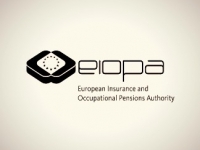News
EIOPA urges insurers
Coronavirus/COVID-19

(Source: © European Union, 1995-2020)
Access to and continuity of insurance services should be considered essential in the context of the outbreak.
Insurers and intermediaries are asked to:
Provide clear and timely information to consumers on contractual rights;
Treat consumers fairly and be explicit in all communications;
Inform consumers about contingency measures taken;
Continue applying product oversight and governance requirements and, where necessary, carry out a product review; and
Consider the interests of consumers and exercise flexibility in how they are treated, where reasonable and practicable.
Insurers and intermediaries are asked to:
Provide clear and timely information to consumers on contractual rights;
Treat consumers fairly and be explicit in all communications;
Inform consumers about contingency measures taken;
Continue applying product oversight and governance requirements and, where necessary, carry out a product review; and
Consider the interests of consumers and exercise flexibility in how they are treated, where reasonable and practicable.
The European Insurance and Occupational Pensions Authority (EIOPA) has issued today a statement to insurers and intermediaries, urging them to take steps to mitigate the impact of Coronavirus/COVID-19 on consumers. While the unprecedented disruption caused by the outbreak has focused insurers´ attention on ensuring business continuity, it is important that consumers continue to be treated fairly. Consumers still rely on insurance during this difficult time and it is essential that insurers continue to provide access to and continuity of service.
EIOPA welcomes initiatives already taken by insurers and intermediaries in recognition of the particular circumstances that consumers find themselves and which may prevent consumers from fulfilling contractual obligations.
Nevertheless, unfair treatment of consumers as a result of disruption to the market is a risk to the entire sector.
With this statement, EIOPA specifically asks insurers and intermediaries to consider a number of different actions, taking into account developments relating to the Coronavirus/COVID-19 outbreak. These include:
Nevertheless, unfair treatment of consumers as a result of disruption to the market is a risk to the entire sector.
With this statement, EIOPA specifically asks insurers and intermediaries to consider a number of different actions, taking into account developments relating to the Coronavirus/COVID-19 outbreak. These include:
Providing clear and timely information to consumers;
Keeping consumers informed about contingency measures that have been put in place;
Continuing to apply product oversight and governance requirements; and
Exercising flexibility in the treatment of consumers where reasonable and practical.
Whilst highlighting the need for flexibility in the interest of consumers and for their continued fair treatment, EIOPA also highlights that imposing retroactive coverage of claims not envisaged within contracts could create material solvency risks and ultimately threaten policyholder protection.
Keeping consumers informed about contingency measures that have been put in place;
Continuing to apply product oversight and governance requirements; and
Exercising flexibility in the treatment of consumers where reasonable and practical.
Whilst highlighting the need for flexibility in the interest of consumers and for their continued fair treatment, EIOPA also highlights that imposing retroactive coverage of claims not envisaged within contracts could create material solvency risks and ultimately threaten policyholder protection.
EIOPA and national supervisory authorities (NSAs) are working collectively to ensure financial stability, market integrity and consumer protection during this time of disruption.
This call to action follows the publication of a statement on actions to mitigate the impact of Coronavirus/COVID-19 on the EU insurance sector; and Recommendations on supervisory flexibility regarding deadlines of supervisory reporting and public disclosure by insurers.
This call to action follows the publication of a statement on actions to mitigate the impact of Coronavirus/COVID-19 on the EU insurance sector; and Recommendations on supervisory flexibility regarding deadlines of supervisory reporting and public disclosure by insurers.
Notably, EIOPA has published:
A statement on actions to mitigate the impact of Coronavirus/COVID-19 on the EU insurance sector; and
Recommendations on supervisory flexibility regarding deadlines of supervisory reporting and public disclosure by insurers.
Insurers as well as insurance intermediaries and ancillary insurance intermediaries (hereafter “intermediaries“), play an important role in enabling consumers to manage their risks by providing protection against uncertainties. Access to and continuity of insurance services should be considered essential in the context of the outbreak.
A statement on actions to mitigate the impact of Coronavirus/COVID-19 on the EU insurance sector; and
Recommendations on supervisory flexibility regarding deadlines of supervisory reporting and public disclosure by insurers.
Insurers as well as insurance intermediaries and ancillary insurance intermediaries (hereafter “intermediaries“), play an important role in enabling consumers to manage their risks by providing protection against uncertainties. Access to and continuity of insurance services should be considered essential in the context of the outbreak.
EIOPA welcomes the initiatives already taken by insurers and intermediaries to support and assist consumers, and the consideration being shown towards consumers affected by the Coronavirus/COVID-19, including those who are particularly vulnerable.
Nevertheless, the scale and depth of the disruption caused by the Coronavirus/COVID-19 outbreak could undermine trust in the sector if the fair treatment of consumers does not remain at the heart of the sector´s responses. It is critical that insurers and intermediaries continue focusing on ensuring business continuity and the fair treatment of consumers.
Nevertheless, the scale and depth of the disruption caused by the Coronavirus/COVID-19 outbreak could undermine trust in the sector if the fair treatment of consumers does not remain at the heart of the sector´s responses. It is critical that insurers and intermediaries continue focusing on ensuring business continuity and the fair treatment of consumers.
In doing this, EIOPA strongly encourages insurers and intermediaries to take into consideration various practical implications of the Coronavirus/COVID-19 for the day-to-day activities of consumers, in particular with regard to the social distancing and self-isolation measures that are now in place. In the current environment, consumers may not be able to fulfil contractual obligations or may be forced to change their normal behaviour. Examples, which should not be interpreted as exhaustive, include:
Not being able to submit a claim within a prescribed timeframe;
Not being able to carry out a check (e.g. a car check-up or a medical check-up);
Using their usual residence as a workspace, which may be in breach of their household policy.
EIOPA expects all market participants to continue to act in the best interests of consumers, throughout the lifecycle of their relationship with the consumer. This is in line with the requirements on policyholder protection set out in relevant legislation such as Directive 2016/97 on Insurance Distribution (IDD) and Directive 2009/138/EC (Solvency II Directive).
Not being able to carry out a check (e.g. a car check-up or a medical check-up);
Using their usual residence as a workspace, which may be in breach of their household policy.
EIOPA expects all market participants to continue to act in the best interests of consumers, throughout the lifecycle of their relationship with the consumer. This is in line with the requirements on policyholder protection set out in relevant legislation such as Directive 2016/97 on Insurance Distribution (IDD) and Directive 2009/138/EC (Solvency II Directive).
In particular, EIOPA asks the following of insurers and intermediaries:
a. Provide clear and timely information to consumers on contractual rights. Inconsistent treatment of exclusions could lead to consumer detriment and wider reputational damage for the insurance sector. It is crucial in these times of distress and pressure that consumers understand and are aware of the scope of their cover, the exemptions that apply and the impact of Coronavirus/COVID-19 on their insurance policies.
a. Provide clear and timely information to consumers on contractual rights. Inconsistent treatment of exclusions could lead to consumer detriment and wider reputational damage for the insurance sector. It is crucial in these times of distress and pressure that consumers understand and are aware of the scope of their cover, the exemptions that apply and the impact of Coronavirus/COVID-19 on their insurance policies.
b. Treat consumers fairly and be explicit in all communications. EIOPA expects market participants to treat consumers fairly and be explicit in their communication with consumers. They should avoid vague terms that could be misinterpreted or lead to confusion. In their communications, market participants are also expected to take into account how consumers may react to volatile markets with the aim of mitigating risks of consumer detriment. All communications should be balanced and carefully calibrated.
c. Inform consumers about contingency measures that insurers and intermediaries are taking. Consumers should also be informed about how these measures can impact their contractual relationship and services provided. Some examples of possible impacts, which should not be interpreted as exhaustive, include:
Continuity of services (e.g. moving services to online channels in greater extent)
Validity of insurance contracts (e.g. temporary automatic extension for the duration of the emergency situation)
Changes to the claims management procedures or to other consumer services
Additional organisational arrangements to deal with consumer inquiries related to the Coronavirus/COVID-19 (e.g. publication of FAQs for consumers, contact details, helpline etc.).
Validity of insurance contracts (e.g. temporary automatic extension for the duration of the emergency situation)
Changes to the claims management procedures or to other consumer services
Additional organisational arrangements to deal with consumer inquiries related to the Coronavirus/COVID-19 (e.g. publication of FAQs for consumers, contact details, helpline etc.).
d. Continue applying product oversight and governance (POG) requirements, taking into account the impact of the Coronavirus/COVID-19 outbreak; where necessary carry out a product review. Product reviews should be aimed at assessing, where relevant for the product, the impact of the Coronavirus/COVID-19 outbreak on the main features of existing products to assess whether they remain consistent with the needs, characteristics and objectives of the identified target market and if not take relevant measures.
While insurers are encouraged to develop new products responding to insurance needs, they should adequately define the target market and assess how such products fit the target market´s needs, objectives and characteristics.
While insurers are encouraged to develop new products responding to insurance needs, they should adequately define the target market and assess how such products fit the target market´s needs, objectives and characteristics.
e. Consider the interests of consumers and exercise flexibility in how they are treated, where reasonable and practicable. In particular, the current situation may call for flexibility in terms of processes and timeframes to allow consumers to retain important coverage that would otherwise be lost.
It is important to recognise that in the case of a widespread pandemic, the pooling of risks necessary for insurance may be difficult to achieve, setting boundaries on what the sector can offer. As a general principle, imposing retroactive coverage of claims not envisaged within contracts could create material solvency risks and ultimately threaten policyholder protection and market stability, aggravating the financial and economic impacts of the current health crisis.
It is important to recognise that in the case of a widespread pandemic, the pooling of risks necessary for insurance may be difficult to achieve, setting boundaries on what the sector can offer. As a general principle, imposing retroactive coverage of claims not envisaged within contracts could create material solvency risks and ultimately threaten policyholder protection and market stability, aggravating the financial and economic impacts of the current health crisis.
EIOPA and national supervisory authorities (NSAs) are working collectively to ensure financial stability, market integrity and consumer protection and are following very closely the developments of the Coronavirus/COVID-19 outbreak. As the nature of the potential conduct and consumer protection risks might change, including greater exposure to cyber risks, EIOPA and NSAs will continue to carry out enhanced market monitoring activities and, when necessary, issue further guidance.
more information: https://europa.eu/european-union/index_en
Liability for this article lies with the author, who also holds the copyright. Editorial content from USPA may be quoted on other websites as long as the quote comprises no more than 5% of the entire text, is marked as such and the source is named (via hyperlink).






